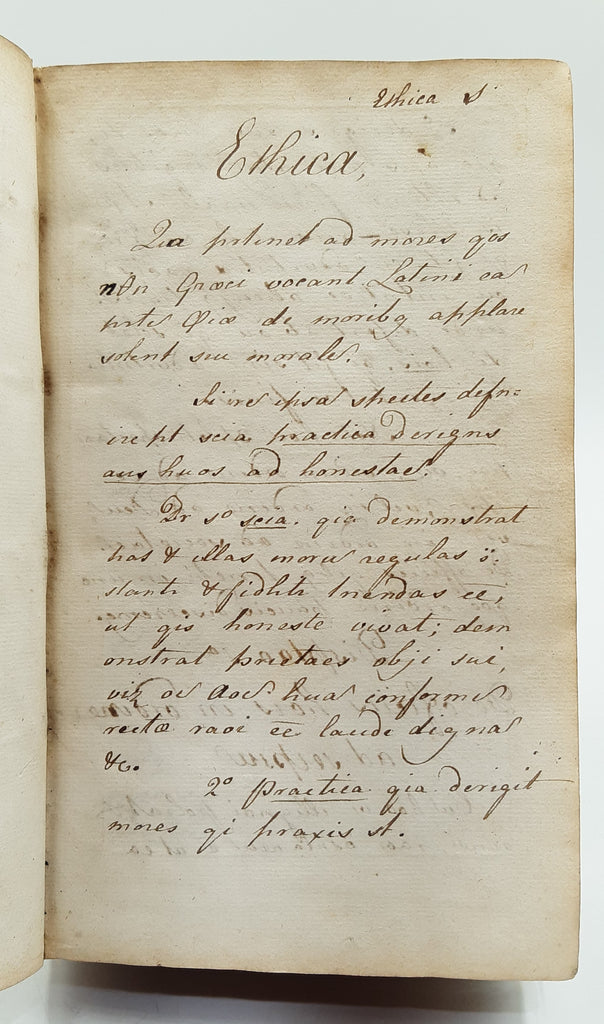Manuscript Notebook on Theology and Philosophy.
Anonymous



n.p. n.d. [18th century].
A detailed notebook in Latin with extensive notes on theology and philosophy. Partly unpaginated: pp75; 380; 169. Half vellum, marbled paper covered boards, heavily rubbed and scuffed, corners and spine worn with loss to first compartment of spine. Internally very good. This is clearly a note book (hence its condition) either made from a series of lectures or written by a teacher for his own lectures. Abbreviations are used throughout and although these are fairly easy to decipher, the book does read as a set of very detailed notes. The book falls into two sections. The first is entitled "Ethica" although it concentrates on the arguments for the existence of God borrowing heavily from St Thomas Aquinas's five proofs. The rest of the book comprises the second section "Metaphysica" and begins with a Prolegomena in an apparent reference to Kant. However, the notes contain headings from the Summa Theologica (de Scientia Dei and de Providentia Dei) and with its references to St Augustine, St Thomas and Leibniz who argued that faith and reason are both Divine gifts and so not contradictory, this a fascinating set of notes on philosophical theology as taught in the eighteenth century.
A detailed notebook in Latin with extensive notes on theology and philosophy. Partly unpaginated: pp75; 380; 169. Half vellum, marbled paper covered boards, heavily rubbed and scuffed, corners and spine worn with loss to first compartment of spine. Internally very good. This is clearly a note book (hence its condition) either made from a series of lectures or written by a teacher for his own lectures. Abbreviations are used throughout and although these are fairly easy to decipher, the book does read as a set of very detailed notes. The book falls into two sections. The first is entitled "Ethica" although it concentrates on the arguments for the existence of God borrowing heavily from St Thomas Aquinas's five proofs. The rest of the book comprises the second section "Metaphysica" and begins with a Prolegomena in an apparent reference to Kant. However, the notes contain headings from the Summa Theologica (de Scientia Dei and de Providentia Dei) and with its references to St Augustine, St Thomas and Leibniz who argued that faith and reason are both Divine gifts and so not contradictory, this a fascinating set of notes on philosophical theology as taught in the eighteenth century.
